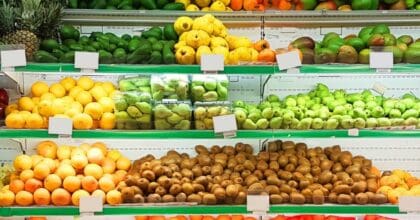-
Articles + –
Leaving a sour taste? UK consumers attitudes towards farmers rights and falling dairy prices
There is a certain déjà vu about today’s news that MPs are urging the government to do more to protect dairy farmers from sharp falls in milk prices.
In July 2012, then Farming Minister Sir Jim Paice MP addressed dairy farmers at an #SOSdairy conference in London following calls for the government to step in over unsustainably low milk prices paid to farmers.
Fast forward two and a half years and somewhat ironically, two weeks ago, as chairman of First Milk Paice announced that the milk co-operative was being forced to defer milk payments to them for two weeks following “a year of volatility that has never been seen before”, to improve its cashflow.
The issues currently faced by First Milk and across the industry are caused by a perfect storm of global factors impacting the industry. However it has inevitably re-opened the debate over the, relatively speaking, low prices charged for fresh cow’s milk in supermarkets.
80% of consumers agree that more profit from the sales of milk should go directly to the farmer
The supermarkets have taken steps in recent years to shield farmers from volatility in milk prices, for example, by linking the milk price paid to farmers to on-farm input costs and/or the retail price of milk.
However, critics argue that the ongoing retail milk price wars act to devalue the price of milk in consumers’ eyes. Mintel’s data meanwhile suggests low milk prices may only be of minor benefit to grocery retailers
Just 12% of consumers say the price of milk affects where they do their grocery shopping. Meanwhile, just 51% of milk buyers say a low price would make them purchase one milk product over another, suggesting that half of consumers do not see low price as a choice factor.
In fact, showing support for dairy farmers could potentially be of greater benefit: 35% of consumers are not convinced supermarkets are doing enough to support British dairy farmers and 80% of consumers agree that more profit from the sales of milk should go directly to the farmer.
It means that operators such as Booths, which renamed its own-label milk as Fair Milk, to reflect that it pays what it says are fair prices to farmers, are well-placed to win goodwill from consumers.
Sainsbury’s, too, has used recent drops in the retail price of milk as an opportunity to promote what it believes is a fairer system of paying farmers.
Such efforts should appeal to those shoppers, discussed above, who are less motivated by price when it comes to buying milk as well as those who favour a better deal for farmers.
-
Mintel StoreGet smart fast with our exclusive market research reports, delivering the latest data, innovation, trends and strategic recommendations....View reports
-
Mintel LeapMintel Leap is a revolutionary new AI-powered platform that will transform your research process....Book a demo







































